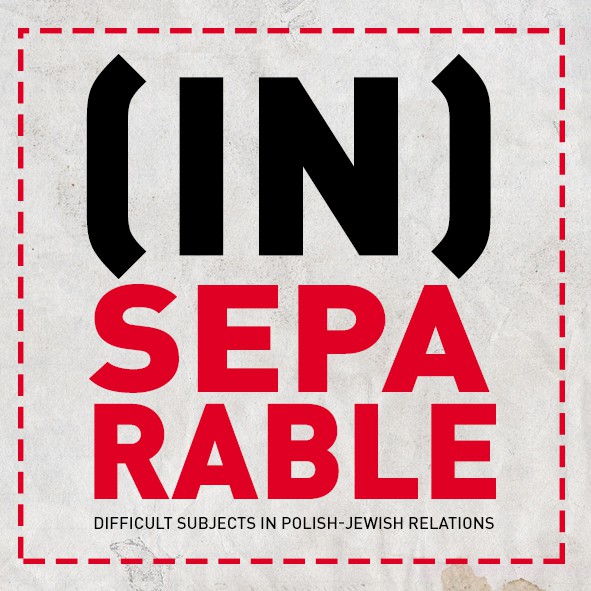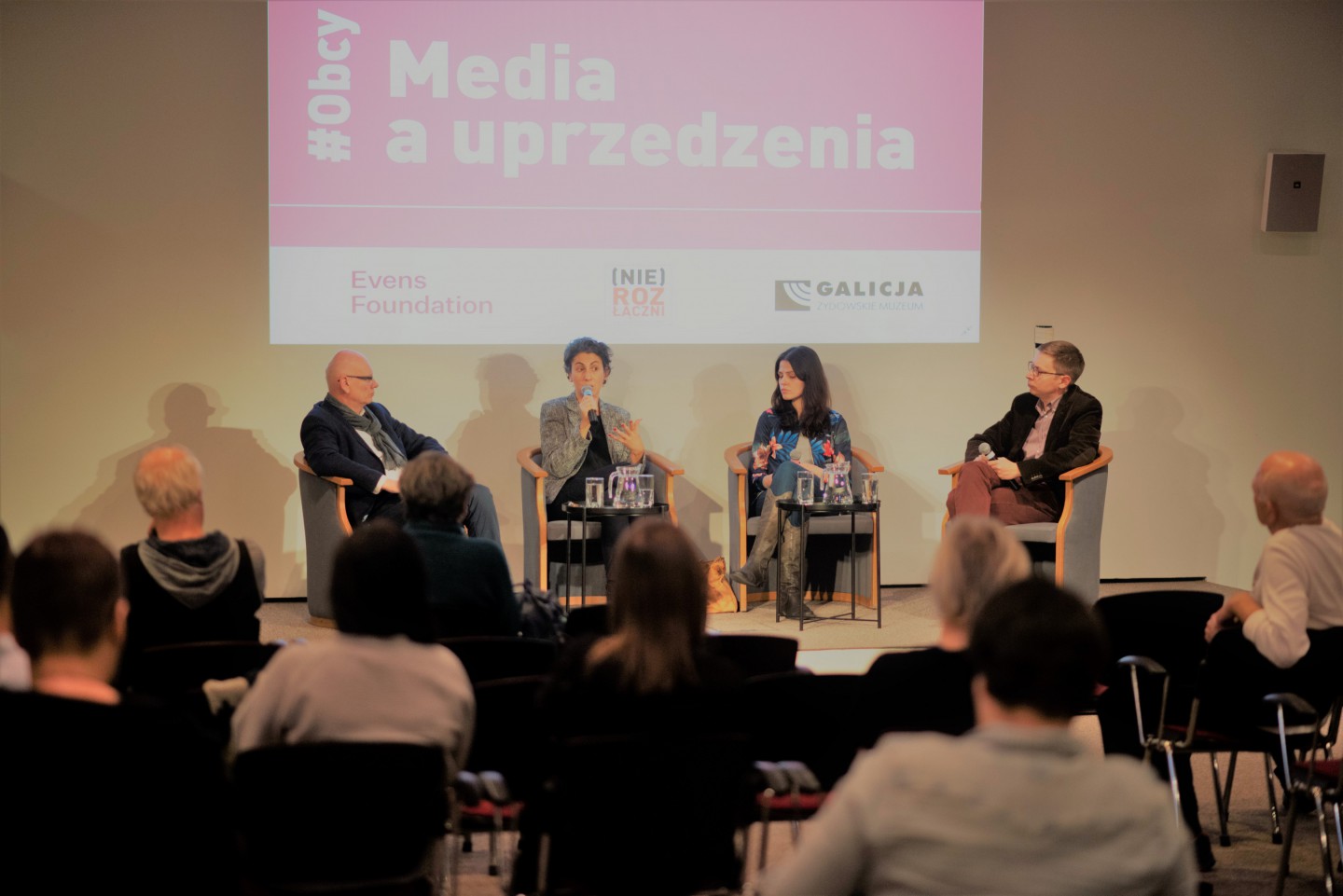In 2019 the Evens Foundation joined the Galicia Jewish Museum in their effort to address and overcome key stereotypes and misunderstandings related to Polish-Jewish relations. Through a series of panel debates, some of the most recognisable Polish historians, researchers and experts explored difficult subjects in Polish-Jewish relations and confronted the most striking misconceptions.
The museum took the initiative as a direct response to a series of events that in recent times have threatened these relations and challenged the process of reconciliation. There are indications that society lacks basic knowledge, but is also led by misconceptions and anti-Semitic prejudices that determine the way Jews and the Holocaust are perceived. It is a global issue, but in Poland – due to our common history – particularly acute.
In the first edition of the project, we invited the audience to seven panel debates held from March to November 2019 in the Galicia Jewish Museum in Krakow. The panels were led by Adam Szostkiewicz, author and journalist at Polityka. The programme included following topics:
• Righteous or Shmaltsovniks (blackmailers)? Polish Attitudes towards Jews during the Second World War (March 2019)
• Strategies of Survival: The Fates of Jews in Occupied Poland (April 2019)
• Jews and Israel. The Attitudes of Jews from the Diaspora toward Israel (May 2019)
• Polish Anti-Semitism. The Sources and Scale of Anti-Semitism in Polish Society (June 2019)
• Catholic Church and the Jews (September 2019)
• Do the Jews Rule the World? Conspiracy Theories (October 2019)
• The Jews and Communism (November 2019)
To amplify the educational dimension of the project, short videos and fact-sheets were produced summarising the most important facts and data from each debate, tackling related ‘fake facts’ and stereotypes. These materials are designed as a practical tool for teachers and are available to download online.
The final event of the series, #Others: Media and Prejudices (carried out under the Evens Foundation Media Meets Literacy label) on 28 November 2019 in Warsaw framed all the issues discussed during the project and analysed them in a wider European context. Prof. Michał Bilewicz (Center for Research on Prejudice, University of Warsaw), Anna Górnicka (Outriders) and Draginja Nadaždin (Amnesty International Poland) were invited by Adam Szostkiewicz (Polityka) to discuss methods that media could deploy to counteract prejudices and hate speech towards minority groups. The debate was preceded by an interactive experience designed to enable the guests to explore the tensions between media representation and identity.
You can see the full photo report here.
Following the great reception of the initiative we continued our partnership with the Galicia Jewish Museum in 2020 – the point of departure for the second edition’s eight debates was the issue of the emotions that Polish-Jewish relations evoke. Adam Szostkiewicz hosted – among others – Ambassador Agnieszka Magdziak-Liszewska, Prof. Małgorzata Melchior, Prof. Andrzej Leder, Prof. Jacek Leociak, Paweł Piotra Reszka and Prof. Joanna Tokarska-Bakir. Topics tackled included:
• Betrayal? Anti-Polish Attitudes In Israel
• Harm? On The Rivalry In Suffering, Commemoration, And Mourning
• Love? Philosemitism in Poland
• Responsibility? Jewish Heritage in Poland
The pandemic forced us to move online but our audience stayed with us – as of the end of December 2020, the debates had been watched by over 3,800 viewers.
In 2021, in the third edition of the project, not only are new problems arising in the complicated field of Polish-Jewish relations being challenged but so too are the mechanisms of stereotyping of other minority groups. These issues will appear in all the discussions and the final debate will focus on the latter specifically. Particular attention will be paid in this series to the role, both positive and negative, of the media in shaping the attitudes and influencing the views of the public. The discussions stem from concrete visual examples, e.g. press excerpts or photography related to each theme. When accompanied by a commentary on the origin of the example, its societal or historical context, these examples will become a starting point for each conversation. This time the debates are led by Kazimiera Szczuka, literary historian and critic, former TV journalist and social activist.
Due to the high interest in previous debates, for the first time the debates are simultaneously translated into English, which allows the project to reach an even wider audience all over the world.
The list of the topics in the third edition includes:
• Between Fascination and Hate. The Image of Jews in Contemporary Poland. (March 2021)
https://www.youtube.com/watch?v=Gdn6zghE8ms
• Between Auschwitz and Oświęcim. Contrary Narratives on Poland. (April 2021)
https://www.youtube.com/watch?v=vuQmqbf77eY
• Between Silence and Propaganda. The Evolution of the Narrative on the Righteous Among the Nations in Postwar Poland. (May 2021)
https://www.youtube.com/watch?v=HtuBx55AQTY
• Between a Monument and a Product. The Processes of Commemoration and Commercialization of Post-Jewish Spaces. (June 2021)
• Between Tradition and Modernity. The Contemporary Polish-Jewish Community. (September 2021)
• Between Desire and Contempt. The Historic and Contemporary Images of Jewish Women. (October 2021)
• Between Us. Polish Fears in Media and Mass Culture (November 2021)

